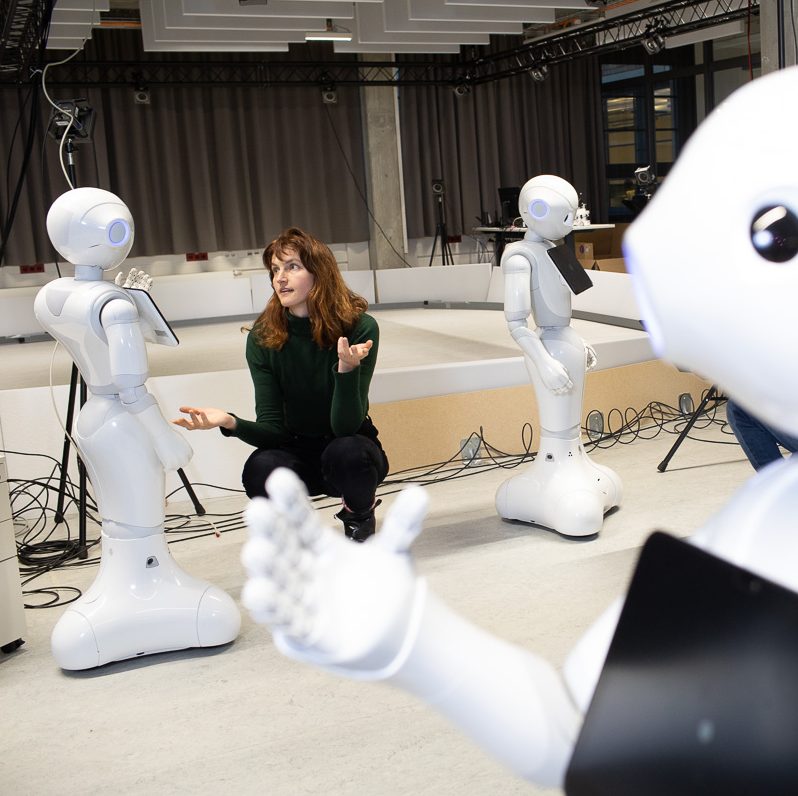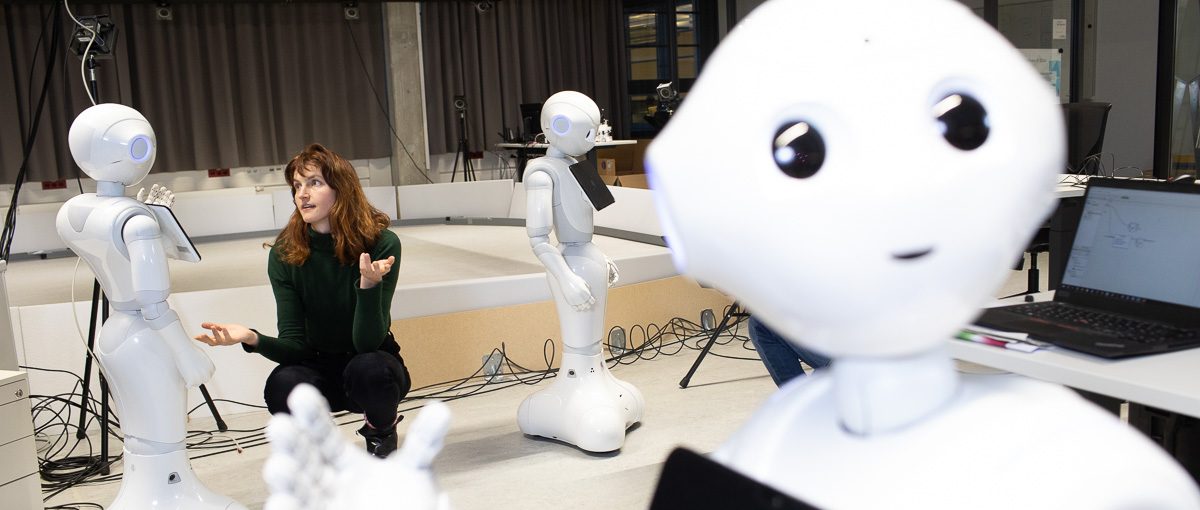SCIoI Researchers co-organize workshop on movement-based intelligence at IEEE RO-MAN 2025
On August 29, 2025, researchers from Science of Intelligence (SCIoI) will co-organize the workshop Movement Matters – A Turing Test for Robot Interaction at the IEEE International Conference on Robot & Human Interactive Communication (RO-MAN 2025), taking place in Eindhoven, Netherlands. The workshop is part of the official conference program and brings together perspectives from robotics, cognitive science, and psychology to rethink how machine intelligence is evaluated.
The event is co-organized by SCIoI members Verena Hafner and Anna Lange, along with SCIoI alumna Doris Pischedda and alumnus Dimosthenis Kontogiorgos. Additional organizers include Francesco Maurelli and Kristina Nikolovska (Constructor University Bremen), and Jan Pohl (TU Dresden).
Rethinking the Turing Test: intelligence beyond language
RO-MAN is one of the leading international conferences on robot-human interaction, known for its emphasis on interdisciplinary research addressing social, communicative, and cognitive aspects of robotics. The 2025 edition continues to explore how robots can be designed to operate intelligently and meaningfully in complex social environments.
The Movement Matters workshop challenges the dominance of language-based evaluation criteria for artificial intelligence. Traditionally, the Turing Test has been used to assess machine intelligence through natural language dialogue. However, in real-world scenarios, intelligence is also, and often primarily, conveyed through movement. As robots increasingly enter human-centered spaces, physical behavior becomes essential not only for functionality but also for social attunement.
From navigation to gesture: movement as a marker of agency
The workshop investigates how non-verbal behaviors, such as gesture, locomotion, proxemics, and approach strategies shape human perceptions of intentionality, intelligence, and trustworthiness in robots. It further explores the possibility of extending the Turing Test into the physical domain by assessing whether robots can exhibit movement patterns that appear intentional, context-sensitive, or human-like.
Key themes include the development of metrics for evaluating naturalness and adaptivity in robotic behavior, the role of movement in human-likeness attribution, the impact of robotic motion on perceived safety and collaboration, and the modeling of motor behavior for implementation on robotic platforms. The workshop also addresses cultural variation in the interpretation of robot movement and the ethical implications of designing movement to simulate intelligence.
Embodied intelligence as a research frontier
By shifting the focus from verbal performance to embodied interaction, the workshop opens a new line of inquiry into machine intelligence that is particularly relevant for social robotics, rehabilitation technologies, collaborative automation, and human-in-the-loop systems. It contributes to ongoing efforts within SCIoI to understand the mechanisms and conditions that give rise to intelligent behavior, whether biological or artificial.
Verena Hafner, PI at SCIoI and Professor of Adaptive Systems at Humboldt-Universität zu Berlin, has long contributed to the field of developmental and cognitive robotics. Her work explores sensorimotor interaction, internal models, and open-ended learning in artificial agents. Co-organizer Anna Lange, a doctoral researcher in Hafner’s group and SCIoI researcher, focuses on adaptive learning in human-robot interaction, specifically on how psychological principles can inform neural network design for robots.
SCIoI alumna Doris Pischedda, now Assistant Professor at the University of Pavia, brings expertise in cognitive neuroscience and computational modeling of social behavior. Her research draws on both human and robot data to build models of brain dynamics that support adaptive behavior in artificial systems. Alumnus Dimosthenis Kontogiorgos, currently at MIT CSAIL, contributes his experience in multimodal, explainable AI and the design of interactive robotic systems capable of social collaboration.
By framing movement as a meaningful indicator of intelligence, the Movement Matters workshop proposes a critical shift in how robotic systems are evaluated and developed. It reflects the Science of Intelligence cluster’s broader commitment to interdisciplinary research that bridges theoretical and applied domains in order to investigate the foundations of intelligent behavior.






